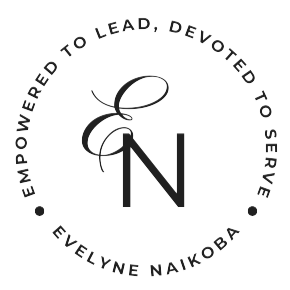Book Appointment Now

Building Mighty Boards—Lessons In Governance From David’s Mighty Men
In the high-stakes world of corporate governance, boards must be more than custodians of compliance—they must be bold, strategic, and unafraid to take ground. In 2 Samuel 23, we encounter David’s mighty men—a group of elite warriors who took territory, tackled enemies head-on, and consistently emerged victorious, often bringing back spoils of war.
While others hesitated or cowered, these men stood firm, went the extra mile, and proved themselves reliable allies to David and his mission. Their example provides profound insights for building “mighty boards” that lead organizations to growth, resilience, and lasting success.
1. Vision and Purpose – Boards Must Take Ground, Not Just Hold It
David’s mighty men were unified under a single purpose—to support their king and fulfill his mission. Each warrior understood their role and contributed to advancing the collective cause. These mighty men weren’t content to defend—they advanced, seized enemy territory, and returned with more than they started. They understood that survival depended on moving forward, not standing still.
Application for Boards:
Boards must embrace a growth mindset. Instead of simply protecting the status quo, they should identify opportunities for expansion, innovation, and increased impact. This requires a bold vision and the courage to make strategic moves even in uncertain times. Boards must align their actions with the organization’s vision and mission. Like David’s men, board members should focus on strategic priorities, ensuring that decisions and policies drive the organization toward its goals. Clear purpose fosters unity and determination, enabling boards to weather adversity.
2. Courage Under Fire – Tackling Challenges Head-On
One standout story is that of Josheb-Basshebeth, who killed 800 men in a single battle (2 Samuel 23:8). Such audacity required not only skill but also wisdom for calculated moves . Similarly, Eleazar defended a field of barley until his hand froze to his sword (2 Samuel 23:9-10), showing resilience in protecting vital resources. Again, Eleazar fought until his hand froze to his sword, refusing to retreat (2 Samuel 23:9-10).
Application for Boards:
Corporate leaders often face crises—financial downturns, reputational risks, or competitive threats. Boards must exhibit courage and calculated risk management to safeguard the organization’s interests, just as David’s warriors defended their territory. Boards must not shy away from challenges, whether it’s market disruptions, regulatory battles, or even financial crises. Instead, they should face these obstacles head-on, taking bold decisions, grounded in sound strategy, which enable companies to thrive in competitive markets.
3. Collaboration and Loyalty – Building Trust
Shammah stood his ground to defend a lentil field when others fled (2 Samuel 23:11-12). His actions demonstrated unwavering loyalty and accountability.
Application for Boards:
Effective governance relies on collaboration and mutual trust. Board members should demonstrate loyalty to the organization’s cause, support one another, and work cohesively to achieve shared objectives. A fragmented board erodes confidence, while unified leadership inspires organizational success.
4. Going the Extra Mile – Committing Beyond Expectations
The three warriors who risked their lives to bring David water (2 Samuel 23:13-17) didn’t see their service as mere duty—they saw it as devotion. They embodied sacrificial teamwork by going above and beyond, even when it wasn’t required, proving their loyalty and reliability.
Application for Boards:
Effective boards don’t just meet quarterly and check boxes; they roll up their sleeves and actively engage in governance. This means mentoring executives, networking for partnerships, and stepping up during crises. Great boards push boundaries to add value, not just oversight.
5. Strategic Thinking – Turning Risks into Opportunities
David’s mighty men did not charge into battle recklessly. They assessed risks, adapted strategies, and leveraged their strengths. Benaiah killed a lion in a snowy pit (2 Samuel 23:20)—an act of bravery but also strategy. He seized an unlikely opportunity to neutralize a threat under harsh conditions.
Application for Boards:
Strategic leadership is essential in corporate governance. Boards must analyze data, anticipate risks, and formulate plans that balance short-term performance with long-term sustainability. Like Benaiah, wise leaders transform risk into strategic opportunities, even in adverse conditions.
6. Bringing Back Spoils – Delivering Results
David’s mighty men didn’t just fight—they returned victorious with spoils. Their efforts were fruitful, and their exploits advanced David’s kingdom.
Application for Boards:
Boards must focus on outcomes—profitability, sustainability, and stakeholder value. Governance is not about survival but about growth, impact, and leaving the organization better than they found it.
7. Diversity of Strengths – Leveraging Different Talents
The mighty men were a diverse group, each bringing unique strengths to the table—combat skills, resilience, and tactical intelligence. Their combined abilities enabled David’s army to achieve remarkable victories.
Application for Boards:
Boards benefit from diversity—of expertise, perspectives, and experiences. A well-composed board mirrors David’s team, where each member complements the others, fostering innovation and balanced decision-making. Diversity enhances problem-solving and reflects stakeholder interests more effectively.
8. Reliability and Trust – Building Confidence in Leadership
David and his God could rely on these warriors without question. Their track record of bravery, success, and loyalty earned them the king’s trust.
Application for Boards:
Boards must demonstrate reliability through consistency, preparation, and sound judgment. Leadership teams and stakeholders should feel confident that the board will deliver, even in uncertain times.
9. Stewardship and God-Inspired Vision – Serving a Higher Purpose
Most importantly, David’s mighty men didn’t act for personal gain—they served God and their leader with unwavering devotion. They understood their victories were not just their own but part of God’s greater plan.
Application for Boards:
Boards must recognize that their leadership is a stewardship, not ownership. Success should not only be measured by profitability but also by alignment with values and principles that glorify God. A board driven by a God-inspired vision will act with integrity, humility, and accountability, always seeking to honor God in every decision.
Conclusion
David’s mighty men remind us that leadership is not for the faint of heart. Their courage, resilience, and willingness to fight—and win—set them apart as leaders who advanced their cause rather than retreated in fear. In today’s volatile business environment, companies can’t afford passive boards. Instead, they need “mighty boards” that go the extra mile, tackle challenges head-on, and always come back with more than they started.
Call to Action:
Is your board prepared to lead like David’s mighty men? Are you ready to advance, protect your mission, and deliver results? Most importantly, are you seeking to glorify God in everything you do? The time to act is now—because victory belongs to boards that dare to take ground and honor God in their stewardship.



